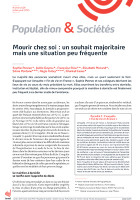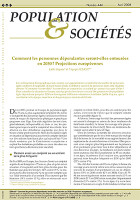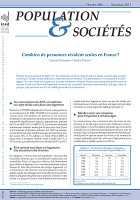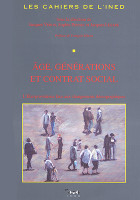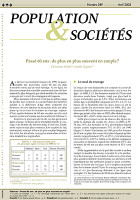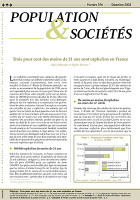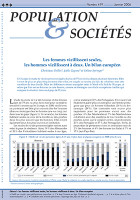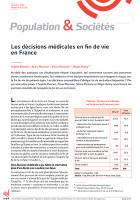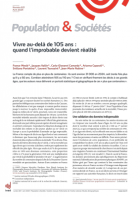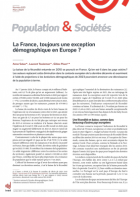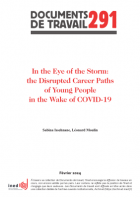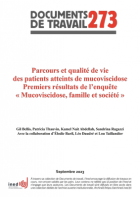
End-of-Life Surveys in the French Overseas Departments : Data Collection Protocol.
Collection : Documents de travail
n° 290, 2024, 65 pages
Background
A number of changes regarding the end of life have occurred in recent decades, notably legislative changes. This
stage of life, which usually comes at an advanced age, is now largely medicalised and institutionalised. This
research project in the French overseas departments follows on from a study conducted in metropolitan France
in 2010 on the circumstances in which people spend their last months of life. From the metropolitan France
study, the researchers were able to assess the implementation of the 2005 Leonetti Law, improve understanding
of residential transitions prior to death, the role of carers, and people’s wishes as to where they want to die. Endof-
life circumstances in the overseas departments are not known. And yet the population is ageing fast, people
commonly die at home, the organisation of family life is changing fast, the share of poverty is higher and there
are fewer residential aged care facilities. These factors all shape end-of-life conditions in different ways, so it will
be useful to acquire more data about the situation in these departments.
Aims
The purpose of this research is to give an overview of end-of-life conditions in the French overseas departments
(Martinique, Guadeloupe, French Guiana and La Réunion). The aim is to see in what ways they differ from those
pertaining in metropolitan France and document what public policy changes would be needed to meet these
departments’ particular needs.
The first research strand explores possible inequalities in medical care at this stage of life between the four
overseas departments and metropolitan France: do the same individual or general situations receive the same
medical care everywhere?
A second strand focuses on implementation of the two laws that grant rights to end-of-life patients in France:
the law of 22 April 2005 and that of 16 February 2016. It compares medical practice with the provisions of the
legislation and describes how much patients and their families know about these laws and their application.
The third strand considers the more sociological aspects regarding family and social context at this stage of life,
how patient care and support is organised and who is involved. Patients’ families were asked about their
perceptions and expectations, with a view to improving quality of life for caregivers and hence also for people in
their last stage of life.
Method
The data had to be gathered, as there were none in existence. We conducted a quantitative survey among
physicians, using the broad lines of the protocol designed for metropolitan France but adapting it to local
particularities to achieve a proper measure of different indicators for all topics under study and in particular
medical decisions at end-of-life. We also conducted a qualitative survey in La Réunion to shed light on the context
for ageing in the overseas departments and the proportion of home deaths. This comprised a series of semidirective
interviews with decedents’ relatives and two focus groups, providing new information about (a)
people’s knowledge of the law and (b) the strengths and weaknesses of end-of-life care at home.
Prospects
This project is the first to provide scientists, the health authorities and the public with objective data on end-oflife
conditions in the French overseas departments. It shows the impact of the overseas departments’
sociodemographic and cultural particularities on end-of-life care and offers health professionals and the
authorities some food for thought on end-of-life care policy.



